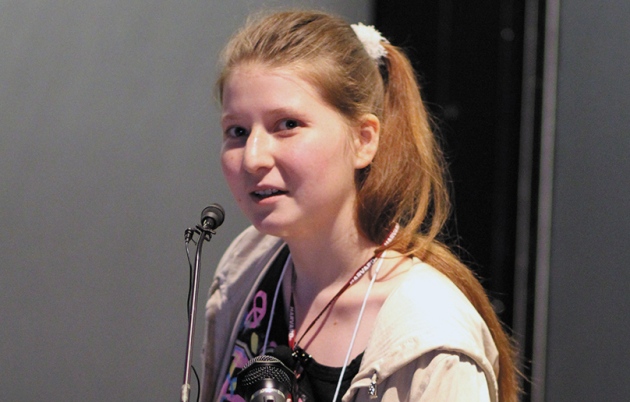Alexandra Elbakyan included in Nature’s top 10

Armenian Alexandra Elbakyan was included in the year’s top 10 of Nature – international weekly journal of science.
It took Alexandra Elbakyan just a few years to go from information-technology student to famous fugitive.
In 2009, when she was a graduate student working on her final-year research project in Almaty, Kazakhstan, Elbakyan became frustrated at being unable to read many scholarly papers because she couldn’t afford them. So she learnt how to circumvent publishers’ paywalls.
Her skills were soon in demand. Elbakyan saw scientists on web forums asking for papers they couldn’t access — and she was happy to oblige. “I got thanked many times for sending paywalled papers,” she says. In 2011, she decided to automate the process and founded Sci-Hub, a pirate website that grabs copies of research papers from behind paywalls and serves them up to anyone who asks. This year, interest in Sci-Hub exploded as mainstream media cottoned on to it and usage soared. According to Elbakyan’s figures, the site now hosts around 60 million papers and is likely to serve up more than 75 million downloads in 2016 — up from 42 million last year and, by one estimate, encompassing around 3% of all downloads from science publishers worldwide.
It is copyright-breaking on a grand scale — and has brought Elbakyan praise, criticism and a lawsuit. Few people support the fact that she acted illegally, but many see Sci-Hub as advancing the cause of the open-access movement, which holds that papers should be made (legally) free to read and reuse. “What she did is nothing short of awesome,” says Michael Eisen, a biologist and open-access supporter at the University of California, Berkeley. “Lack of access to the scientific literature is a massive injustice, and she fixed it with one fell swoop.”
For the first few years of its existence, the site flew under the radar — but eventually it grew too big for subscription publishers to ignore. In 2015, the Dutch company Elsevier, supported by the wider publishing industry, brought a US lawsuit against Elbakyan on the basis of copyright infringement and hacking. If Elbakyan loses, she risks having to pay many millions of dollars in damages, and potentially spending time in jail. (For that reason, Elbakyan does not disclose her current location and she was interviewed for this article by encrypted e-mail and messaging.) In 2015, a US judge ordered Sci-Hub to be shut down, but the site popped up on other domains. It’s most popular in China, India and Iran, she says, but a good 5% or so of its users come from the United States.
Elbakyan has found her name splashed across newspapers, and says she typically gets a hundred supportive messages a week, some with financial donations. She says she feels a moral responsibility to keep her website afloat because of the users who need it to continue their work. “Is there anything wrong or shameful in running a research-access website such as Sci-Hub? I think no, therefore I can be open about my activities,” she says.
Critics and supporters alike think that the site will have a lasting impact, even if it does not last. “The future is universal open access,” says Heather Piwowar, a co-founder of Impactstory, a non-profit firm incorporated in Carrboro, North Carolina, which helps scientists track the impact of their online output. “But we suspect and hope that Sci-Hub is currently filling toll-access publishers with roaring, existential panic. Because in many cases that’s the only thing that’s going to make them actually do the right thing and move to open-access models.”
Whether or not that’s true, Elbakyan says she will keep building Sci-Hub — in particular, to expand its corpus of older manuscripts — while studying for a master’s degree in the history of science. “I maintain the website myself, but if I’m prevented, somebody else can take over the job,” she says.
By Richard Van Noorden

























